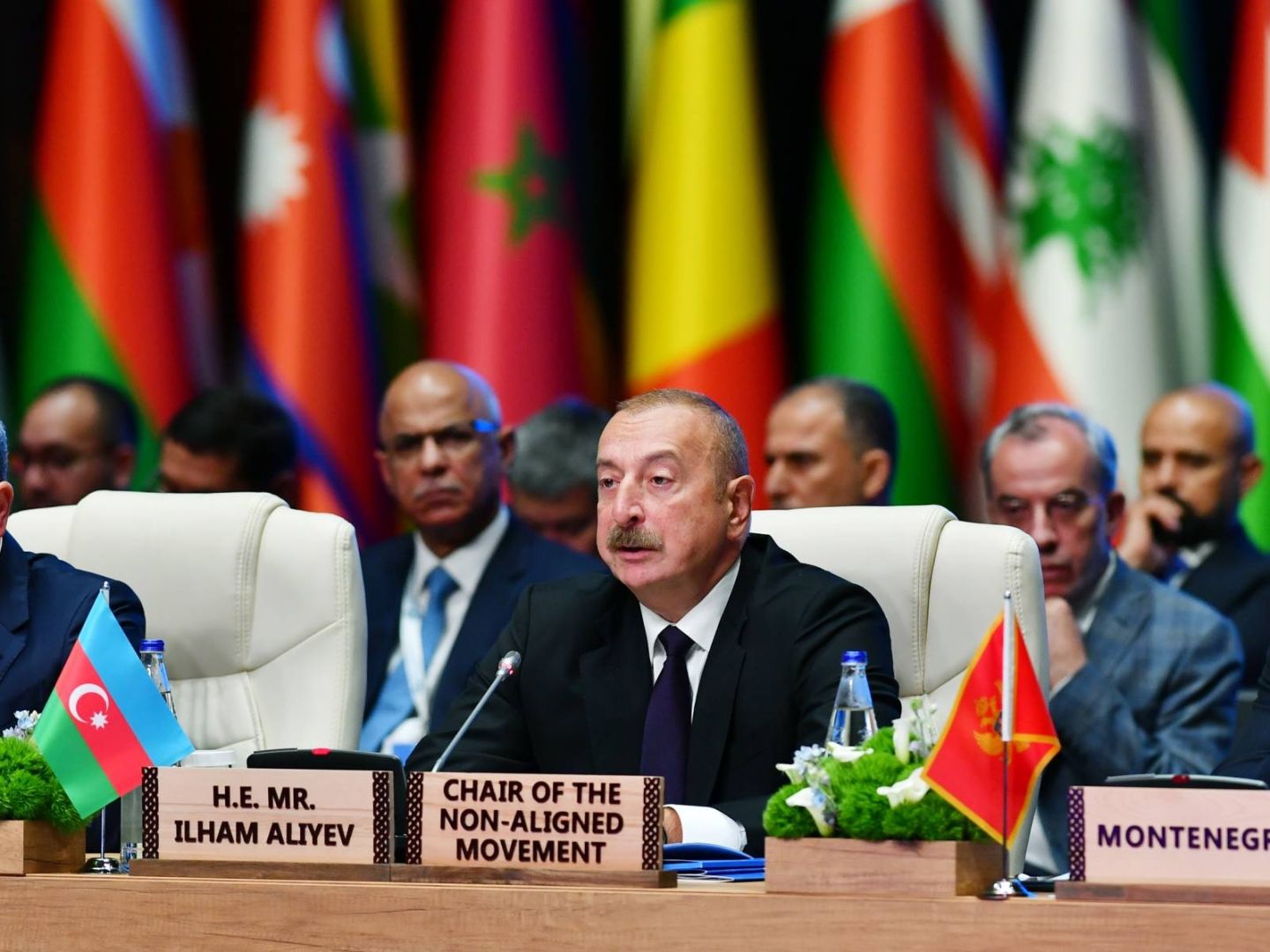|
|
TODAY.AZ / Analytics
French neo-colonialism falls into focus as relations with Azerbaijan deteriorate
07 January 2025 [14:01] - TODAY.AZ

By Farman Aydin | AzerNEWS
The deepening rifts in French-Azerbaijani relations have already begun to widen significantly on a global scale. The situation has a serious impact not only on political but also on economic relations. As France's centre-left President Emmanuel Macron loses his influence in power, his aggression against official Baku is simultaneously increasing. The anti-Macron and anti-French protests that have arisen domestically and in the French overseas islands are somehow associated with Baku.
Macron claims that Azerbaijan interferes in France's domestic and foreign policy and, making unfounded statements, calls on Azerbaijan not to support the small island states. Interestingly, the French government, which positions itself as an international human rights defender, considers its colonial policy towards New Caledonia and other colonised overseas territories acceptable and calls their support from outside a provocation. More explicitly, Baku is blamed for the growing hatred of the Macron government in these island states.
So how come France, with a GDP of over 3 trillion and a strong military potential, sees Azerbaijan as such an obstacle?
French-Azerbaijani relations began to change dramatically after the Second Garabagh War in 2020. This resulted in a strained political, economic, and cultural relationship. France, defending Armenia, which had occupied the Azerbaijani territories of Garabagh and East Zangazur, declared an openly biased diplomatic war against Azerbaijan.
France, knowingly defending Armenia's crimes in Garabagh, began to blatantly defend it within the framework of international law. Even at multilateral meetings, the French administration influenced the decisions of the European Union and unfairly accused Baku. After the last anti-terrorist operation in 2023, France's position towards Azerbaijan worsened and, with the support of the Armenian lobby, began to continue in the form of anti-Azerbaijani propaganda.
From time to time, such provocations and anti-Azerbaijani slogans began to break the bonds in French-Azerbaijani relations. Instead of restoring the delicate situation, France, which further aggravated it, once again demonstrated its biased position with its latest step back in November. By refusing to participate in the 29th event of the COP held in Baku, established on the basis of the Paris Agreement document, France demonstrated not only its bias against Baku, but also its betrayal on the global stage. France did not stop at this and did not refrain from smear and defamation campaigns against COP29 and continued its cheap campaigns through Armenia.

Azerbaijan, on the other hand, maintained its honest position on the global stage and did not spare its support for the oppressed peoples within its chairmanship to the non-aligned movement. Although France calls this interference in state policy, the position of hundreds of small countries that have been subjected to oppression is completely different today. France, which ignored the occupied Azerbaijani territories and Armenian crimes, got unmasked and failed to successfully play the role of an international human rights defender. Therefore, the French authorities are looking for the culprit in the wrong place at the wrong time due to its lost reputation
URL: http://www.today.az/news/analytics/256199.html
 Print version
Print version
Connect with us. Get latest news and updates.
See Also
- 03 March 2026 [07:00]
Iran after Khamenei: war, economic downturn, and risk of fragmentation - 02 March 2026 [20:28]
Erdogan's Ethiopia visit: how Türkiye building power along Red Sea corridor [INTERVIEW] - 02 March 2026 [04:00]
Brace for impact: With Iran in crisis, markets fear $100-a-barrel oil - 27 February 2026 [18:00]
Beyond optics: How Israel–India partnership alters Pakistan and Iran’s calculus - 27 February 2026 [13:41]
How Azerbaijan’s post-war leverage meets Armenia’s economic reality - 27 February 2026 [08:30]
SOCAR wins European Commission approval for Italian takeover - 26 February 2026 [12:21]
Britain sanctions Russian disinformation in Georgia while BBC echoes it in Azerbaijan - 26 February 2026 [00:00]
Massacre at Khojaly and shadow of 366th regiment - 25 February 2026 [20:51]
Garabagh and East Zangazur poised to add 15 billion manats to Azerbaijan’s economy [COMMENTARY] - 25 February 2026 [08:30]
How industrial parks emerge as backbone of Azerbaijan’s export strategy
Most Popular
 Oil and Sargsyan: how Yerevan dreamed of making money from resources of Caspian Sea
Oil and Sargsyan: how Yerevan dreamed of making money from resources of Caspian Sea
 Timor-Leste President José Ramos-Horta to attend Global Baku Forum 2026
Timor-Leste President José Ramos-Horta to attend Global Baku Forum 2026
 Iran's IRGC claims launching attack on Israeli PM Netanyahu's office
Iran's IRGC claims launching attack on Israeli PM Netanyahu's office
 Lebanon's prime minister warns against dragging country into 'adventures'
Lebanon's prime minister warns against dragging country into 'adventures'
 Serbian diplomats to be evacuated from Iran to Azerbaijan as embassy damaged by shrapnel
Serbian diplomats to be evacuated from Iran to Azerbaijan as embassy damaged by shrapnel
 Total of 192 people evacuated from Iran to Azerbaijan, yet
Total of 192 people evacuated from Iran to Azerbaijan, yet
 Flydubai flights from Kazan and Moscow divert to Azerbaijan
Flydubai flights from Kazan and Moscow divert to Azerbaijan
